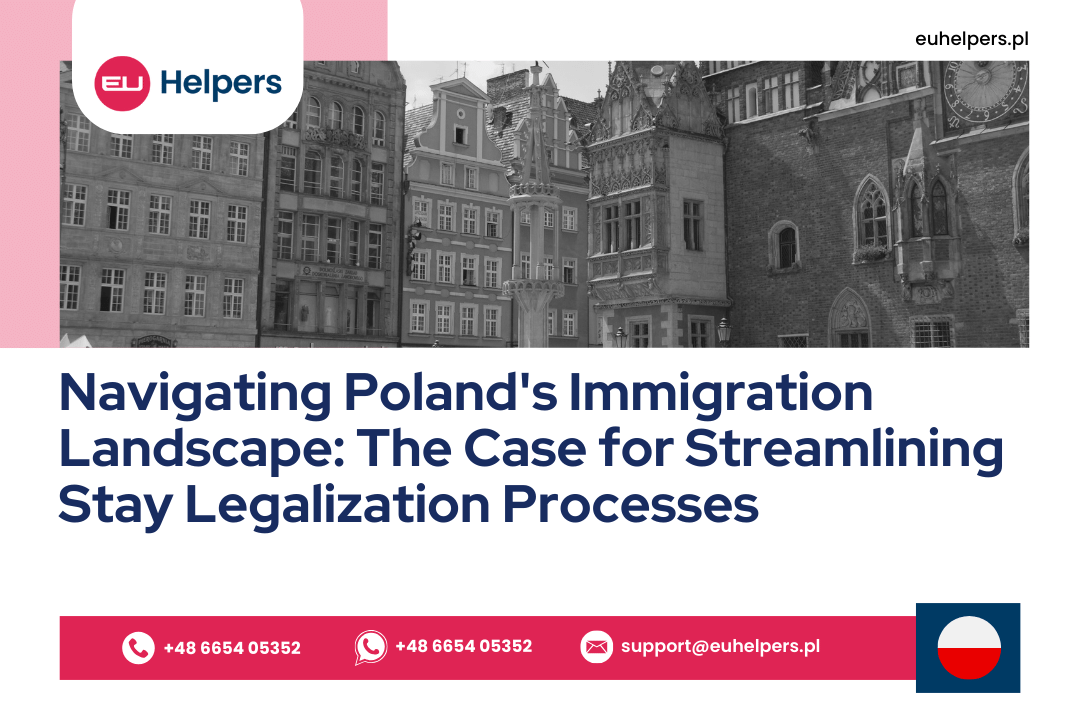
Poland's immigration landscape presents both challenges and opportunities, prompting a compelling case for streamlining the existing processes. The current system, characterized by bureaucratic complexities, could benefit from a more efficient approach to enhance economic growth, foster social integration, and attract global talent.
At the heart of the matter is the intricate web of documentation and procedures that aspiring immigrants must navigate. Simplifying and consolidating these processes would not only alleviate the burden on applicants but also expedite the overall immigration timeline. This streamlined approach is crucial in attracting skilled professionals and investors, who often seek countries with straightforward entry procedures.
Economic considerations play a pivotal role in advocating for immigration reform. Poland stands to gain significantly from an influx of skilled labor, contributing to innovation and productivity across various sectors. By reducing red tape, the country can position itself as an attractive destination for international talent, stimulating economic growth and competitiveness on the global stage.
Furthermore, a streamlined immigration system can address demographic challenges, such as an aging population and declining birth rates. Welcoming a diverse range of immigrants can inject vitality into the labor market, bolstering the workforce and sustaining social welfare systems. This demographic infusion can also bring about cultural enrichment, fostering a more cosmopolitan and dynamic society.
Social integration is another facet that benefits from an efficient immigration system. Simplified processes contribute to a more inclusive environment, facilitating the seamless integration of newcomers into Polish society. This, in turn, promotes social cohesion, breaks down cultural barriers, and enriches the national fabric with diverse perspectives.
Education and innovation are integral components of a thriving economy. Streamlining immigration processes can attract international students and researchers, fostering a vibrant academic community. By positioning itself as a hub for knowledge exchange, Poland can enhance its global standing in research and development, creating a positive feedback loop of innovation and economic prosperity.
However, in advocating for streamlining, it is crucial to balance efficiency with security measures. Implementing robust background checks and safeguards ensures that the streamlined system does not compromise national security or public safety. Striking this balance is essential to instill confidence in both the local population and potential immigrants.
Public perception and awareness also play a significant role in the success of immigration reforms. Clear communication about the benefits of streamlining, coupled with efforts to dispel misconceptions, can garner support from the public and policymakers alike. A well-informed and supportive community is more likely to embrace the positive impacts of immigration, fostering a welcoming atmosphere for newcomers.
In conclusion, Poland stands at a crossroads in its immigration landscape, presenting an opportunity to reshape policies for the benefit of its economy, society, and global standing. Streamlining immigration processes is not merely a matter of administrative convenience; it is a strategic move to position Poland as an attractive and competitive destination on the world stage. By embracing a more efficient and inclusive approach, Poland can unlock the full potential of immigration, reaping the rewards of a diverse and dynamic population.
